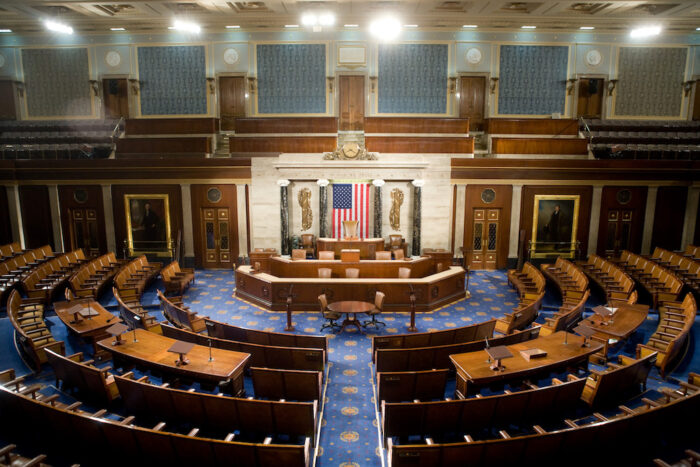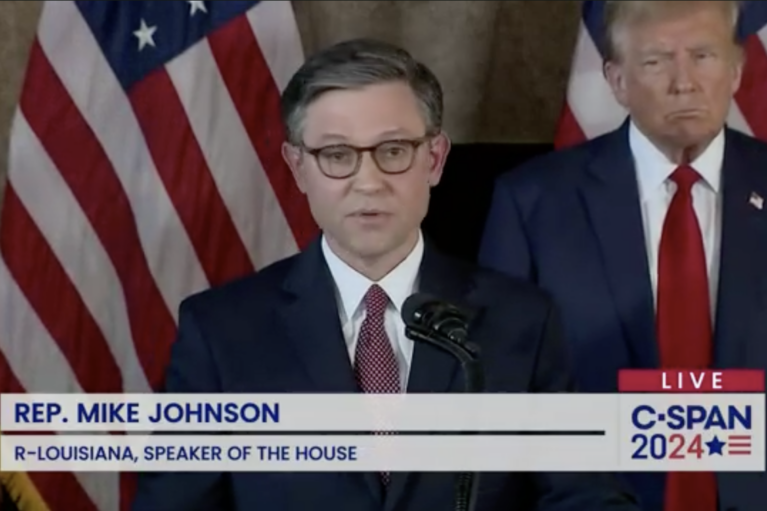Delaney, Seeking Momentum from TV Debate, Keeps Pressure on Progressive Foes
As a second set of Democratic presidential contenders took to the debate stage in Detroit Wednesday night, former Maryland congressman John K. Delaney continued to seek momentum from the previous evening’s candidate scrum, when he sought to draw a sharp ideological contrast between himself and two frontrunners, Vermont Sen. Bernie Sanders and Massachusetts Sen. Elizabeth Warren.
Just as Wednesday night’s debate was to begin airing on CNN, Delaney spokesman Michael Starr Hopkins released a statement warning that Warren, Sanders and some of the other candidates were offering policy prescriptions that risked dragging the party too far to the left to compete with President Trump.
“When candidates like Senator Sanders, Senator Warren, and some on the stage tonight push an agenda that they know is purely political and not based in reality, they squander our chance to take back the White House, the Senate, and our country,” he said.
Moments earlier, Delaney himself had released a statement that was a twist on a rebuke that Warren had sent his way during the Tuesday night debate, when she took him to task for offering incremental rather than bold solutions to the nation’s ills.
“I don’t understand why anyone goes through the trouble of running for President if they either can’t explain how their plans work or can’t honestly debate their ideas without reverting to accusing people who disagree with them of reciting Republican talking points,” Delaney said in his statement. “The media should ask Senator Sanders and Senator Warren why they’re so scared to debate the merits of their plans.”
While several candidates Tuesday night sought to cast distinctions between their views and those of Sanders and Warren, Delaney was most aggressively on the attack. His campaign referred to it as a “breakthrough moment” for the former congressman, who has been seen as a longshot contender.
Whether Delaney’s high-profile criticisms result in greater attention and support – or qualifies him for the next round of officially sanctioned Democratic National Committee debates – remains to be seen.
While Tuesday’s debate with 10 qualifying candidates provided a stark ideological contrast between Sanders and Warren and a scrum of low-polling moderates, Wednesday’s forum, with a fresh set of candidates, was less focused on the spectrum from left to right than — to hear many of former vice president Joe Biden’s opponents tell it — past to future.
The moderators of the CNN-sponsored debate frequently allowed the candidates to engage in sustained one-on-one dialogues, providing a break from the sometimes rapid-fire burst of policy soundbites at Tuesday night’s debate. On almost every topic, from criminal justice to foreign policy to equal pay for women, candidates argued that Biden’s platform is ill-suited for what they hope will be a post-Trump era.
Sen. Cory Booker (D-N.J.) was perhaps Biden’s biggest critic on Wednesday, then chimed in with a quip about Biden’s semi-frequent invocation of his partnership with Obama. Referencing a criminal justice reform plan that Biden released over the weekend, Booker said it did not do enough to make amends for supporting decades of legislation that have put many people in prison with long sentences.
“Mr. Vice President has said that ‘since the 1970s, every major crime bill — every crime bill, major and minor, has had his name on it,” Booker said. “You can’t just now come out with a plan to put out that fire.”
Booker also accused Biden of trying to take advantage of his service in the Obama administration.
“Mr. Vice President, you can’t have it both ways,” he said. “You invoke President Obama more than anybody in this campaign. You can’t do it when it’s convenient and then dodge it when it’s not.”
In contrast to the first debate in June, Biden seemed more willing to hit back at his opponents. And to burnish his progressive credentials, he pointed to his work on, among other things, 2009’s Lilly Ledbetter Fair Pay Act.
Derek Robertson from the Michigan Advance contributed to this report. Click here to read his full account.




 Creative Commons Attribution
Creative Commons Attribution